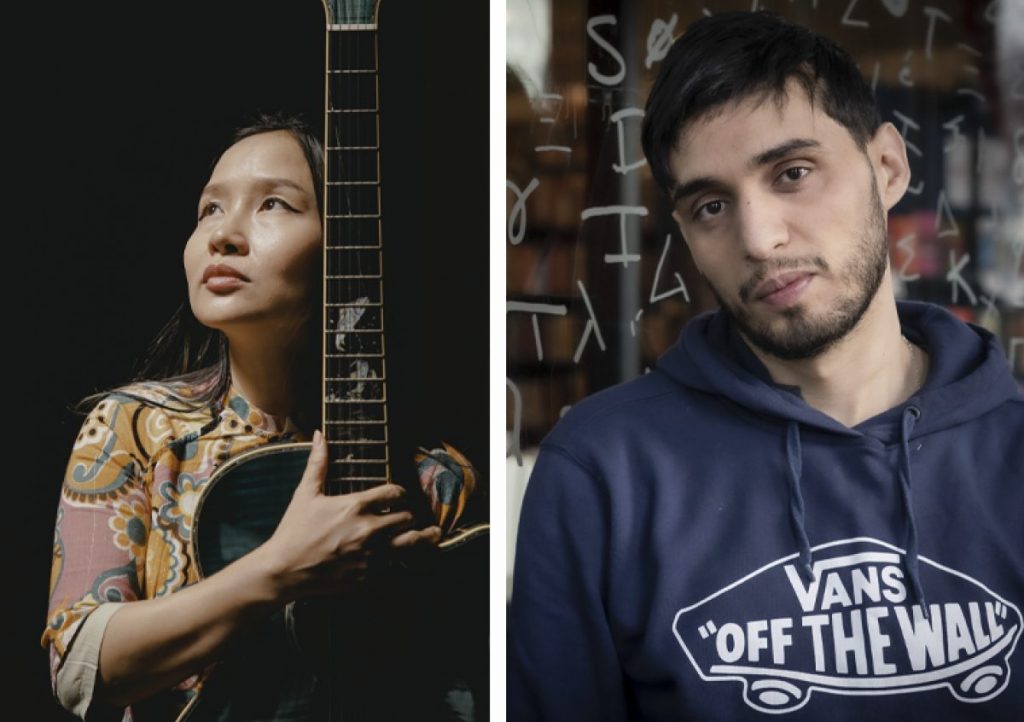In early 2016, thousands of dead fish littered Vietnam’s beaches. It was believed that Formosa Ha Tinh Steel had spilled enough chemical waste into the sea to harm over 125 miles of coastline, washing thousands of dead fish and other sea life up on the shore. When peaceful protestors gathered to demonstrate their opposition, violence erupted between protestors and the police. Mai Khoi witnessed the abuse and had to act.

“I saw the police beat them on the street,” Mai said. “They just have a very peaceful protest, but they got beaten on the streets. I couldn’t stand it. It just made me get stronger, to invoke (more) activism.”
So Mai, an award-winning pop singer, nominated herself as an independent candidate in Vietnam’s 2016 election. She aimed to show the people of Vietnam their voting rights; however, she was disqualified from the ballot and became the target of political harassment. Thus, her career in activism had begun.
From 12:30 to 1:30 p.m. today in the Hall of Philosophy, artists from Pittsburgh-based City of Asylum, a nonprofit that provides a place of refuge for persecuted artists, will engage with Chautauquans in a panel on “Welcome and Safe: Persecuted Artists at Home in the U.S.” The program includes a Q-and-A.
“Besides our two institutions being in close proximity and some of our patrons’ overlaps, the mission of Chautauqua Literary Arts to be a place for writers and readers is not different than City of Asylum’s (mission),” said Michael I. Rudell Director of Literary Arts Sony Ton-Aime, who last off-season participated in some of the organization’s programming. “I have long admired the work that our friends at City of Asylum have been doing in welcoming writers and artists from all over the world and providing a safe place where they can feel safe and grow. It is a work that we are happy to support and amplify.”
The panel will consist of artists who have faced persecution in their home countries for sharing dissenting beliefs, and have found refuge through City of Asylum. Mai will be among the artists featured alongside Algerian writer and human rights defender, Anouar Rahmani.
Mai’s music journey intertwines with her activism, and began when she was young.
“When I was 4 or 5 years old, I was interested in music because my father was a music teacher,” she said. “He had a music class in our house. I joined his class.”
Mai went on to study music at university, but when creating songs, she had to abide by Vietnam’s censorship system that encouraged propagandic music and banned certain topics.
“I know there’s some songs that we cannot sing, some lyrics that we shouldn’t write about; some issues, some topics that were very sensitive, we shouldn’t write about,” Mai said.
Mai believes that being an artist demands unbridled creative expression, and when that is allowed, music is a “direct way to make people move,” and also shows the concern people have for their communities.
“To me, if you are a real artist, you need freedom to create,” she said. “… I think when we care about our society deeply, we have more soul to create art.”
She also believes that music and political conversation support one another.
“Freedom of expression is a very basic right that human beings should have. That right should be protected,” Mai said. “If you don’t have freedom of expression, you will not have a chance to contribute your opinions. You will not have a chance to learn others’ opinions, so you cannot decide for your own society. And that is un-democracy. That’s an unhealthy society.”
Rahmani, whose work supports underrepresented minorities, feels that writing should also be used to create political discourse and encourage an engaged, evolving society. He first started writing in his youth to record his childhood perspectives on life.
“Writing, for me, was a big discovery,” Rahmani said.
In the early 2010s, when Rahmani was a young adult, the Algerian regime began using “their religious legitimacy to cover their lack of (political) legitimacy,” and subsequently, he said, it began persecuting both minorities and atheists who were implementing their freedom of speech.
Rahmani reflected on the Algerian revolution of the 1950s and 60s, which inspired him to write a historical novel centered on a queer Algerian political figure, who goes by Jean Pierre in the novel. Rahmani wanted to paint a fuller picture of Alegria’s history. As he workshopped the novel, some of his friends were arrested as a direct result of the political oppression of atheists. Rahmani wanted to include a chapter of the novel for those friends, so he crafted an ironic tale about a 13-year-old who claimed to be God and said he made the sky out of chewing gum.
“I published this novel on the internet. At first, I wanted this novel to be just for my friends to read … but something happens,” Rahmani said. “I don’t know how it happens, but, blogs, Facebook accounts, they republished the novel. And some of the people that republished the novel, they were journalists. And then one of the national newspapers in Algeria, they said that I insulted their revolution.”
Rahmani then faced police interrogations, bans on his books and harassment from the government. This eventually led to his relocation to Pittsburgh with City of Asylum.
He wants Chautauquans to leave today’s panel not only feeling empathy for those in parts of the world that are suffering, but to realize that America is not separate from that suffering.
“I want Americans to know that what they have now is not stable,” he said. “If they don’t defend, if they don’t stand for more rights here, for equality here, or for equity here, everything can be banished with time.”
Editor’s note: This event did not take place as scheduled, as many Institution events were canceled following an incident in the Amphitheater on Friday, August 12.




